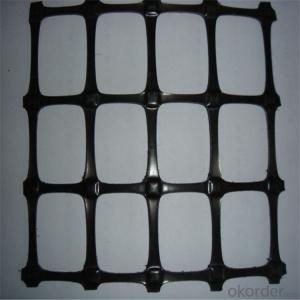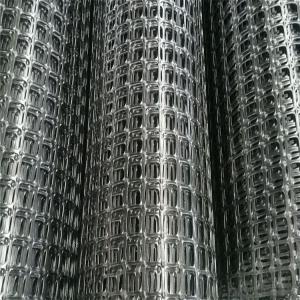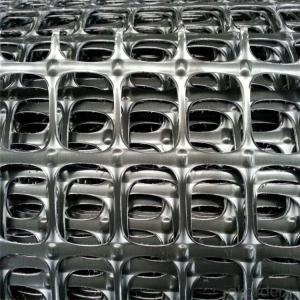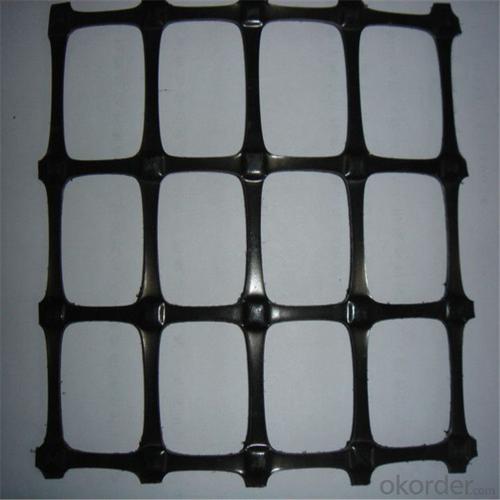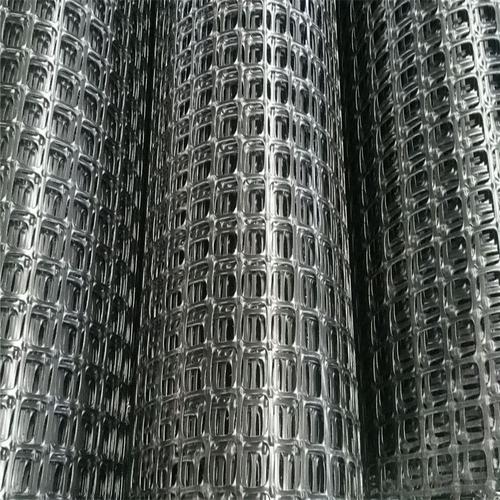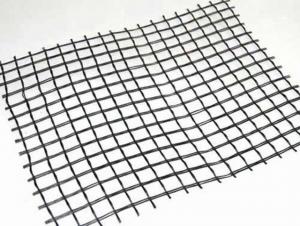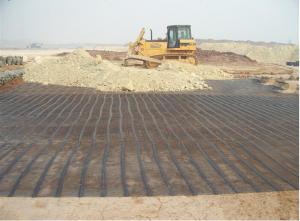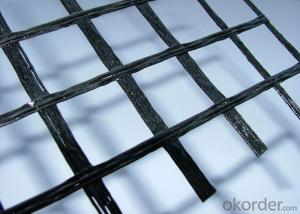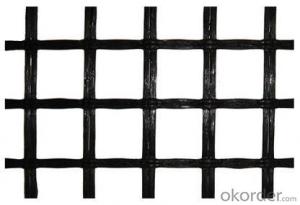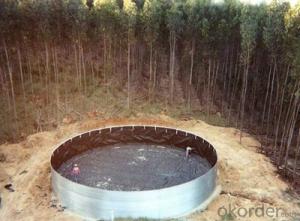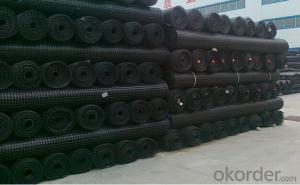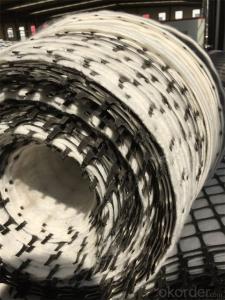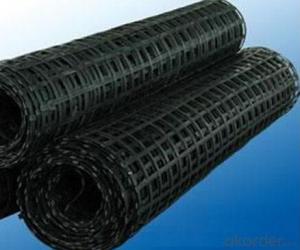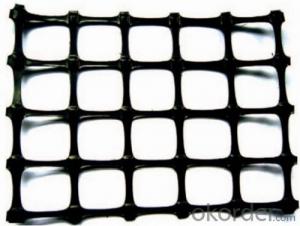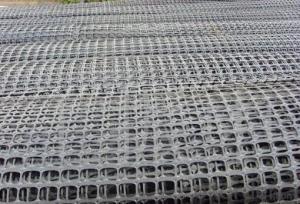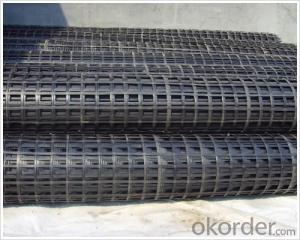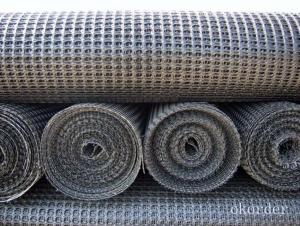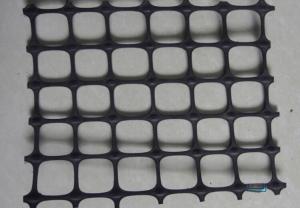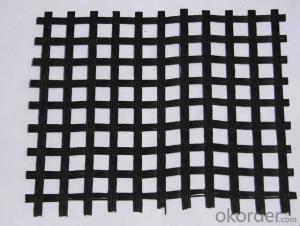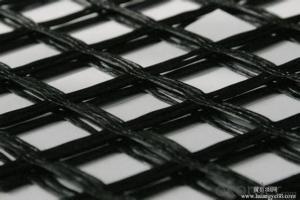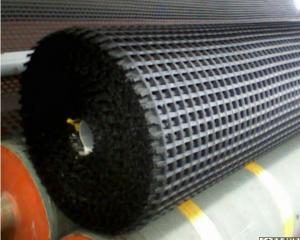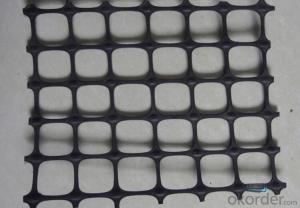HDPE Geocells PP Biaxial Geogrid with High Tensile Strength Direct Factory
- Loading Port:
- Qingdao
- Payment Terms:
- TT OR LC
- Min Order Qty:
- 1000 g/m²
- Supply Capability:
- 10000 g/m²/month
OKorder Service Pledge
OKorder Financial Service
You Might Also Like
Introduction:
Biaxial geogrid, made of high molecular polymer, is extruded into sheet and then punched into regular mesh pattern, and finally stretched in longitudinal and transverse directions.
Properties of PP Biaxial Geogrid
Item Spec | TGSG 15-15 | TGSG 20-20 | TGSG 25-25 | TGSG 30-30 | TGSG 35-35 | TGSG 40-40 | TGSG 45-45 | TGSG 50-50 | ||
Tensile Strength ≧(Kn/m) | MD | 15 | 20 | 25 | 30 | 35 | 40 | 45 | 50 | |
TD | 15 | 20 | 25 | 30 | 35 | 40 | 45 | 50 | ||
Nominal Elongation ≦(%) | MD | 15 | ||||||||
TD | 13 | |||||||||
Tensile Strength at 2% Strain ≧(Kn/m) | MD | 5 | 7 | 9 | 10.5 | 12 | 14 | 16 | 17.5 | |
TD | 5 | 7 | 9 | 10.5 | 12 | 14 | 16 | 17.5 | ||
Tensile Strength at 5% Strain ≧(Kn/m) | MD | 7 | 14 | 17 | 21 | 24 | 28 | 32 | 35 | |
TD | 7 | 14 | 17 | 21 | 24 | 28 | 32 | 35 | ||
Junction Efficiency (%) | 93 | |||||||||
Width ≦(m) | 6 | |||||||||
Images of PP Biaxial Geogrid
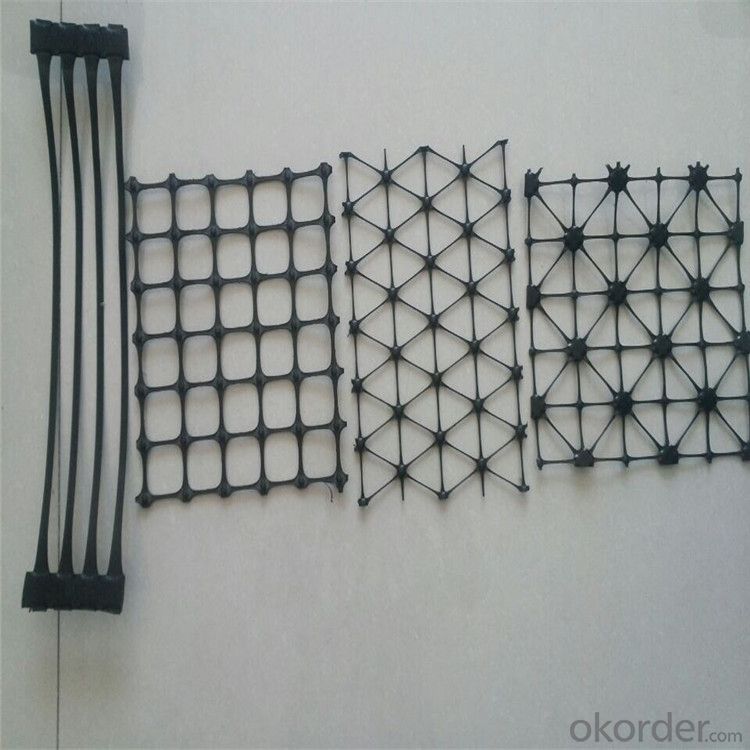
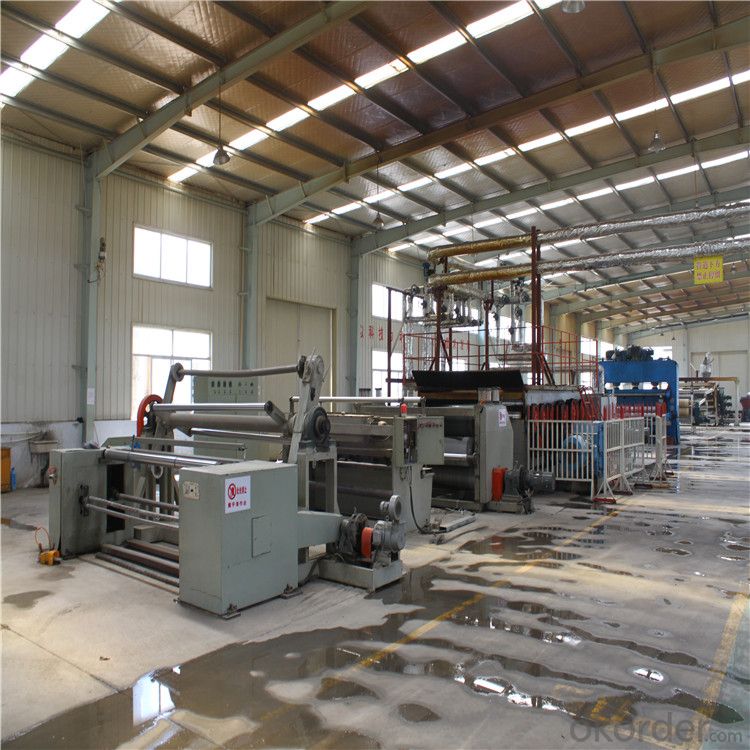
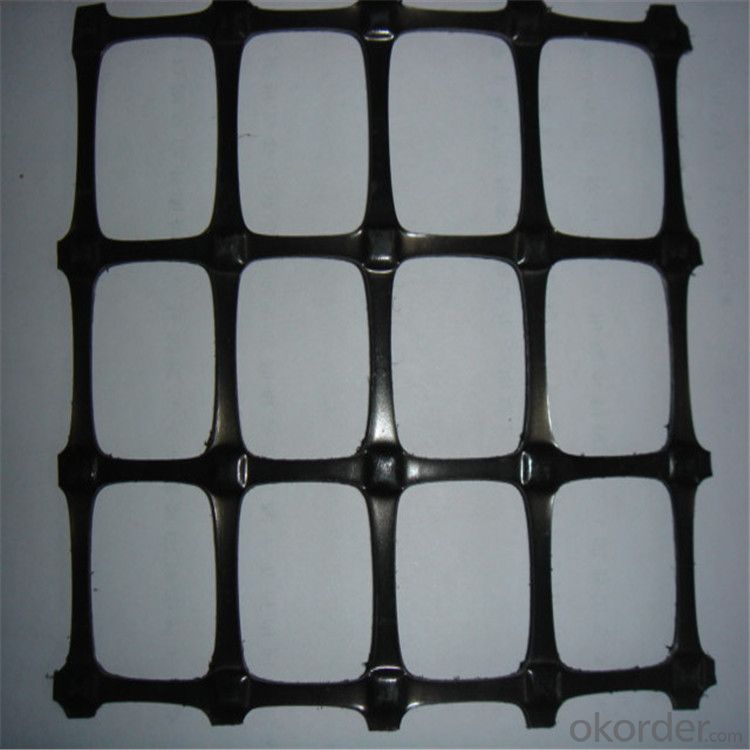
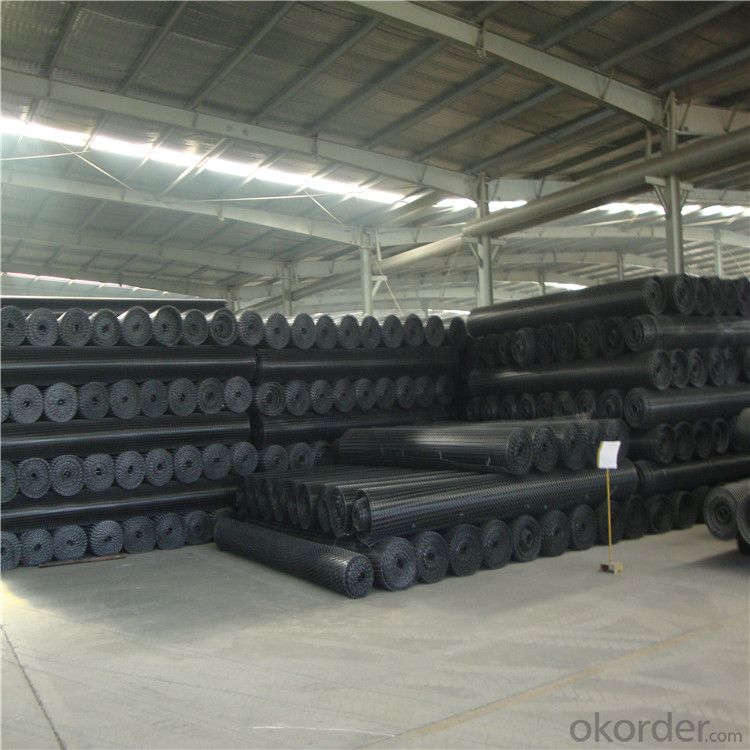
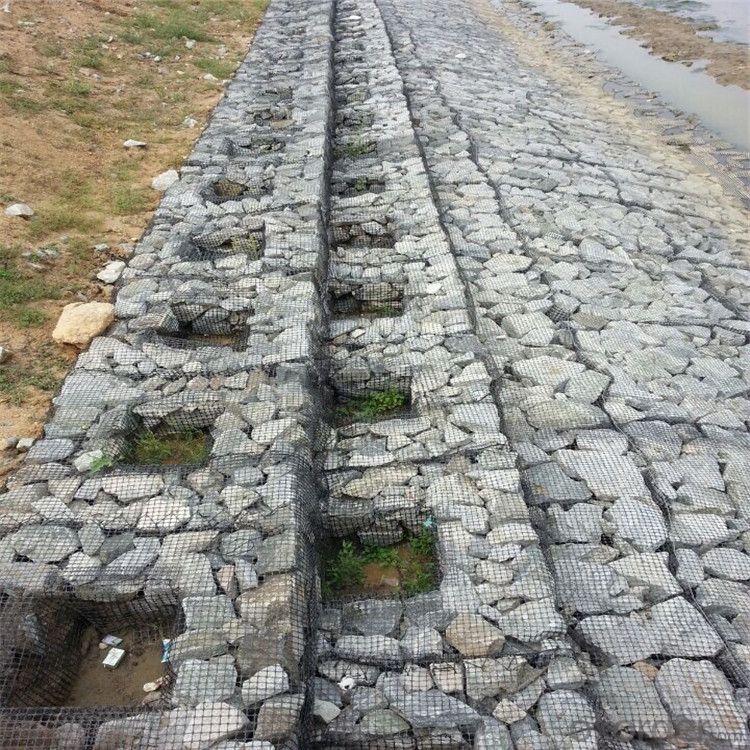
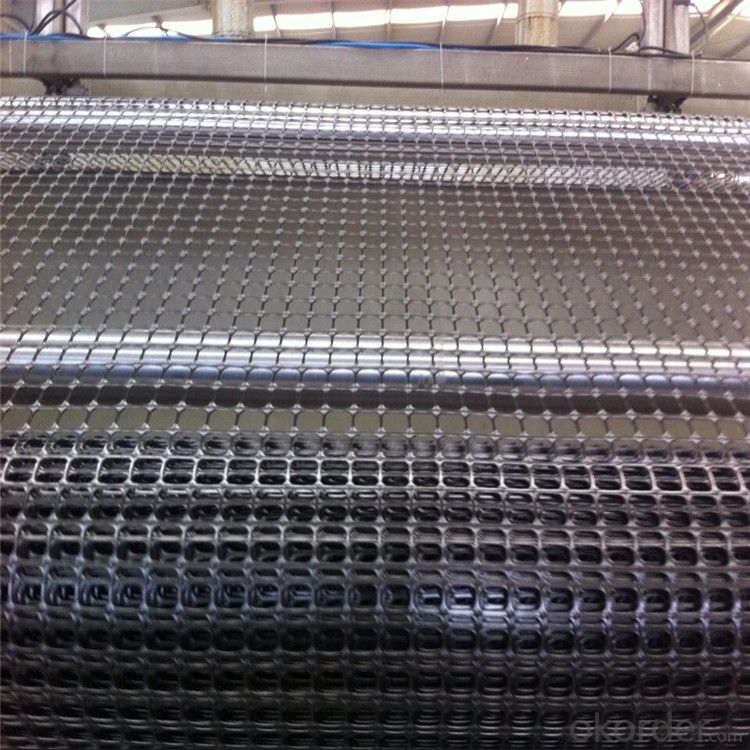
- Q: Geotextiles for geotextiles - Specification for geotextiles
- 5Protective effect of 6. It has the following characteristics as non-woven geotextile has more than six functions, so it can be widely used in railway, highway, sports venues, dams, water conservancy construction, tunnel, coastal beach reclamation, environmental engineering,. The application of the field of water conservancy engineering geotextile: Seawall dyke Lake embankment projecttarget reservoir; reinforcement; reclamation project; flood control. Highway and railway port engineering: soft foundation reinforcement treatment; slope protection; pavement anti reflection crack structure layer; drainage system; green isolation belt. Electrical engineering: nuclear power plant foundation engineering; thermal power ash dam project; hydropower station project. Port and Waterway Engineering: the performance and application of the port geomembrane: the product has excellent filtration, drainage, isolation, reinforcement, protection. Can be widely used in railway, highway, water conservancy construction, sports hall, dam, tunnel, coastal beach, Ken, environmental protection, power plant, around the airport project.
- Q: Production of geotextile manufacturers which good
- Needle punched nonwoven fabric and PE film composite geotextile:A specification film cloth, a cloth film two, maximum width of 4.2 meters is the main raw material to use acupuncture non-woven polyester staple fiber, PE film by composite, is mainly used for seepage control, applicable to rail, highway, tunnel, subway, airport project. Geotextile manufacturers can choose Wo environmental protection
- Q: Can geogrids be used in stabilization of riverbanks?
- Yes, geogrids can be used in the stabilization of riverbanks. Geogrids are commonly used in civil engineering projects to reinforce soil and prevent erosion. When used in stabilization of riverbanks, geogrids can help retain the soil, provide structural support, and reduce the risk of erosion caused by the river's flow.
- Q: What are the load-bearing capacities of geogrids?
- The load-bearing capacities of geogrids can vary depending on factors such as the type of geogrid, its design, and the specific application. Generally, geogrids have high tensile strength and are capable of withstanding heavy loads. However, it is important to consult the manufacturer's specifications and engineering guidelines for accurate load-bearing capacity information for a particular geogrid.
- Q: How do geogrids help in reducing soil settlement?
- Geogrids help in reducing soil settlement by providing reinforcement to the soil, increasing its stability and preventing excessive movement. They distribute the load over a larger area, improving the overall bearing capacity of the soil and reducing the potential for settlement. Additionally, geogrids can restrict lateral movement of the soil particles, minimizing the chances of settlement and maintaining the integrity of the structure or foundation.
- Q: What are the advantages of using geogrids in ground improvement for liquefaction mitigation?
- Geogrids offer several advantages when used in ground improvement for liquefaction mitigation. Firstly, geogrids provide increased shear strength to the soil, which helps to prevent liquefaction during seismic events. They enhance the stability and load-bearing capacity of the ground by effectively distributing loads and reducing settlements. Additionally, geogrids improve the overall performance of the soil by increasing its stiffness and reducing its compressibility. This ultimately leads to a more stable and resilient ground, reducing the risk of liquefaction-induced damage. Furthermore, geogrids are lightweight, easy to install, and cost-effective, making them a practical choice for ground improvement projects.
- Q: Can geogrids be used in seismic zones?
- Yes, geogrids can be used in seismic zones. Geogrids are commonly employed as a stabilizing mechanism in soil reinforcement applications, including in areas with high seismic activity. They are designed to improve the tensile strength and stability of soils, which can help mitigate the effects of seismic forces on structures.
- Q: Are geogrids suitable for reinforcing railway subgrades?
- Yes, geogrids are suitable for reinforcing railway subgrades. Geogrids help to improve the stability and load-bearing capacity of the subgrade by distributing the loads more evenly. They also reduce soil movement, improve drainage, and prevent the formation of cracks and settlement. Overall, geogrids can significantly enhance the performance and longevity of railway subgrades.
- Q: Are geogrids suitable for use in slope stabilization for mining tailings dams?
- Yes, geogrids are suitable for use in slope stabilization for mining tailings dams. Geogrids provide reinforcement and stability to the slopes, preventing erosion and potential failure of the dam. They are designed to withstand high loads and are effective in controlling soil movement, making them an ideal solution for slope stabilization in mining tailings dams.
- Q: How does a geogrid work?
- A geogrid works by providing reinforcement to soil or other materials. It is typically made of high-strength polymers or fibers arranged in a grid-like pattern. When placed within the soil, the geogrid interlocks with the surrounding particles, creating a stable network. This enhances the tensile strength and overall performance of the soil, preventing excessive movement, erosion, or failure. The geogrid redistributes applied loads, reducing stress concentrations and improving the stability and longevity of structures like retaining walls, roadways, and embankments.
Send your message to us
HDPE Geocells PP Biaxial Geogrid with High Tensile Strength Direct Factory
- Loading Port:
- Qingdao
- Payment Terms:
- TT OR LC
- Min Order Qty:
- 1000 g/m²
- Supply Capability:
- 10000 g/m²/month
OKorder Service Pledge
OKorder Financial Service
Similar products
Hot products
Hot Searches
Related keywords
